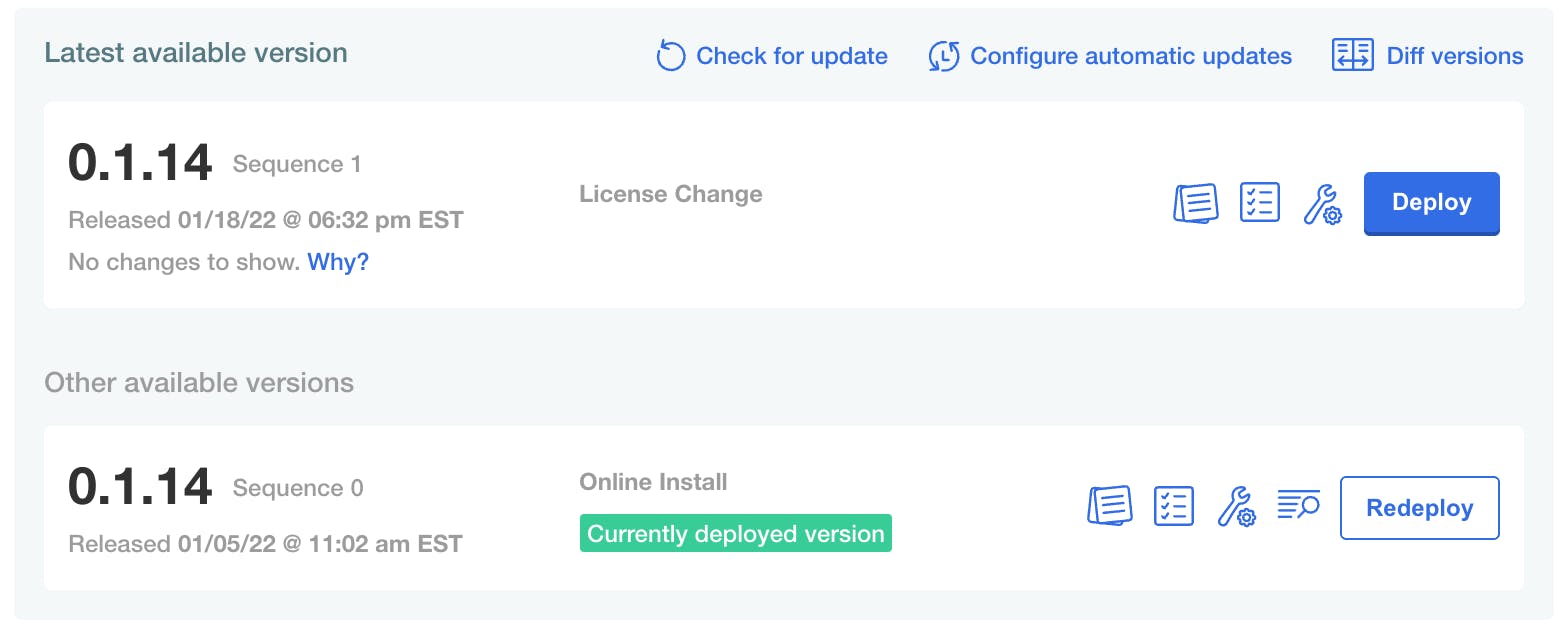In upcoming releases of the replicated app manager and Kubernetes installer, we will introduce two exciting new features that we want you to be aware of. Neither of these changes necessarily requires any action from you, but we’d like to keep you in the loop about these changes and some exciting, related capabilities.

Redesigned Admin Console UI/UX
In an upcoming version of replicated’s app manager, we are going to introduce exciting redesigns of the admin console app dashboard and version history pages. These redesigns are not only aesthetic improvements, but the app dashboard redesign, in particular, is functional, too. This redesign brings key capabilities and information right to the app dashboard. For example, you will be able to view and sync your license, see the configured snapshot storage destination, take a snapshot, configure automatic updates, and more right from the dashboard.
This change is controlled by a feature flag that replicated will turn on by default for all teams. Once the feature flag is enabled, all supported versions of the app manager will display the redesigned admin console pages. Keep your eye on the KOTS release notes on Friday and early next week to see which version of the app manager is the first to support the redesign. All prior versions will continue using the old design. Note that when this change is enabled, admin consoles running the supported versions will show a license change in the version history, reflecting this update.

If you would like to opt out of this change temporarily, get in touch with your customer success manager to have the feature flag turned off for your team. However, the feature flag is only in use temporarily; redesigns will soon become standard for supported versions of the app manager.
Host Preflights Will Be Blocking but Vendor-Controllable
In an upcoming version of replicated’s Kubernetes installer, failing host preflights will begin blocking installations and upgrades. The default host preflight checks already run during Kubernetes installations and upgrades, but they currently do not block, regardless of their result. Failure will block the installation or upgrade from proceeding with this upcoming change. Keep your eye on the kURL release notes on Friday and early next week to see which version of kURL first enables this.
We recently introduced the ability to customize host preflights. Additional host preflights can be run with the default checks, or the default checks can be disabled, and a custom suite of host preflights can run instead. In light of blocking failed host preflights, this allows you to build host preflights “just right” so that if the default host preflights do not entirely meet your needs, you can run additional checks or change them as you see fit.
If you are concerned about the customer impact of blocking failed host preflights, please keep these two things in mind:
- The Kubernetes installer supports pinning a release version of kURL. This ensures reproducibility when using your installer, and it allows you to test new changes to kURL before introducing them to your customers.
- In addition to customizing host preflights, host preflight warnings can be enforced and errors can be ignored using the `host-preflight-enforce-warnings` and `host-preflight-ignore` flags.
We are looking forward to seeing these feature enhancements help give our customers a great product experience. For questions, please reach out to your customer success manager.